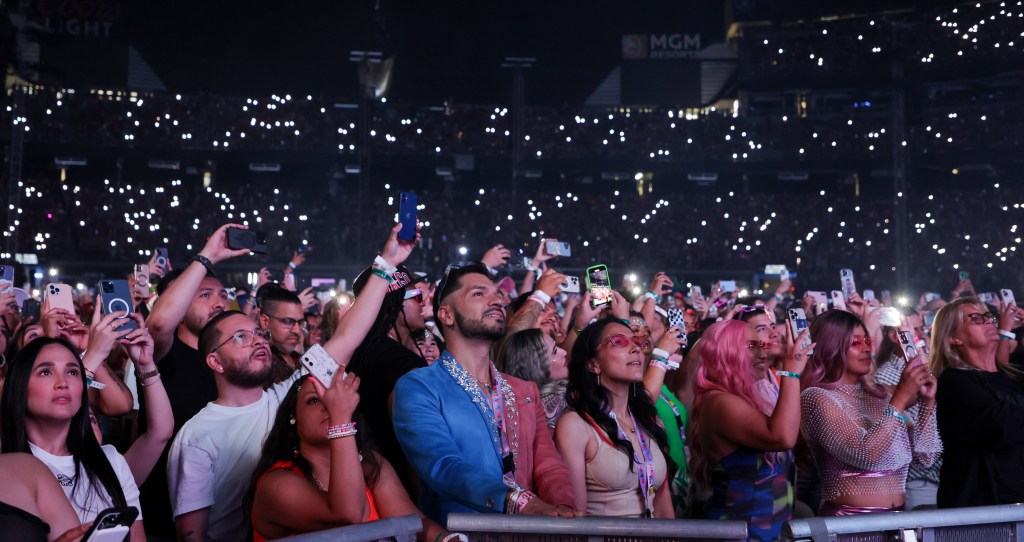In the past year, the demand for live events exceeded predictions, resulting in unprecedented ticket sales. At the same time, elevated operational expenses, unpredictable weather, staffing shortages and prolonged strikes by the Writers Guild of America and Screen Actors Guild posed ongoing challenges to revenue generation in the entertainment sector.
Recovering impressively from the pandemic, the entertainment industry is projected to rake in a hefty $68.7 billion in revenue from live events — which includes sports — in 2024, up from $66.6 billion in 2019, just before the pandemic.
Notably, Live Nation, the parent company of Ticketmaster, witnessed a staggering 36 percent revenue hike, reaching $8.2 billion in the first three quarters of 2023 compared to the same period in 2022. Concurrently, global sporting events are also thriving, with an anticipated $29 billion in ticket sales for 2023, marking a 6 percent increase from 2022.
However, despite a promising outlook, profitability faces hurdles. A strike by writers and actors brought media and entertainment productions to a standstill nationwide, resulting in economic losses surpassing $5 billion by September due to production delays and revenue loss.
Complicating matters further, shifting weather patterns and increased severe storms are disrupting numerous live events, prompting higher costs for cancellation coverage and necessitating specific requirements for all events, notably in coastal areas and regions susceptible to storms, tornadoes, earthquakes and other natural disasters.
Mandatory insurance prerequisites include comprehensive written plans encompassing evacuation procedures, emergency contact information, disaster kits, post-storm contingency measures and protocols for actions during the storm. These stipulations are applicable to a wide array of live events, such as filming, concerts, festivals, conferences and more. Inflation, alongside the rising complexity of staging and equipment, is also driving up production expenses and narrowing profit margins.
Entertainment companies are passing these escalating costs on to consumers, causing a 14 percent increase in average ticket prices compared to pre-COVID levels. Despite this, the demand has remained robust, evident in a remarkable 45 percent surge in concert ticket sales in 2023 compared to 2019.
Another consideration entertainment businesses will have to contend with in 2024 is the longstanding skilled labor shortage. A significant number of workers have shifted away from the entertainment industry, resulting in a lingering deficit of skills that remains unfulfilled. The impact of ongoing strikes compounds this issue, with essential professionals like special effects experts, set designers and production accountants — already in short supply — leaving the industry to seek alternative means of livelihood, with many among them unlikely to return to entertainment. In addition, this persistent scarcity has empowered workers to be discerning in choosing their engagements, often requiring several months’ notice before committing to a job.
Like many other industries across the U.S., in order to hire and retain a strong workforce, the entertainment sector is ramping up its focus on employee benefits, including health insurance, financial wellness programs and retirement options. Mental health benefits are especially crucial given the demanding travel schedules and extensive work hours common in the business, which disproportionately impacts mental wellbeing within this industry. In fact, studies reveal alarming statistics: Performing arts workers are twice as likely to suffer from depression as the general population, and individuals employed in arts, design and entertainment face the third-highest suicide rate among various industries.
Given the transient nature of jobs in this sector, workers often face payment gaps between gigs and must self-fund their retirement, emphasizing a critical need for financial education. By prioritizing tailored benefits such as financial wellness programs, employers will not only bolster wellbeing but also fortify their recruitment and retention endeavors.
The challenges threatening the resilience of the entertainment industry also encompass mergers and acquisitions; stage, tent or roof collapses resulting from extreme weather; as well as insurance premium hikes of up to 15 percent. Rates are climbing, coverage is shrinking, and exclusions persist for pandemics, communicable diseases, and minimal to no coverage for civil authority or disturbances. Policy durations that were previously set at a six-month span might now be capped at three months for cancellation insurance.
While some insurers are no longer underwriting in entertainment entirely, those that are new to the space are imposing strict requirements for thorough and detailed submissions, operational summaries, supplemental applications and a track record of positive experience. Insurers are intensifying their demands for comprehensive information from policyholders, requiring detailed data on evacuation strategies, crowd safety management, security measures, ongoing training and background check systems within the entertainment industry.
Companies fostering a safety-conscious culture could potentially earn more favorable insurance rates. Worker training, robust crowd safety measures, such as facial authentication software and a well-thought-out emergency response plan, are crucial for venue owners, event planners and promoters. These protocols hold particular significance for large-scale concerts or sporting events hosting tens of thousands of attendees. Amidst the current challenges, partnering with a brokerage offering robust risk services support becomes imperative for entertainment organizations. While obstacles to profitability persist, businesses equipped with a comprehensive risk management strategy, data-driven employee benefits, open communication with their broker, and sufficient insurance coverage stand poised for success in 2024.
Andrew Forchelli is president of Hub International LAOC (Los Angeles and Orange County) and the leader of the entertainment and sports practice. (Read the company’s full 2024 outlook here.)




